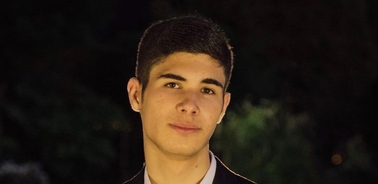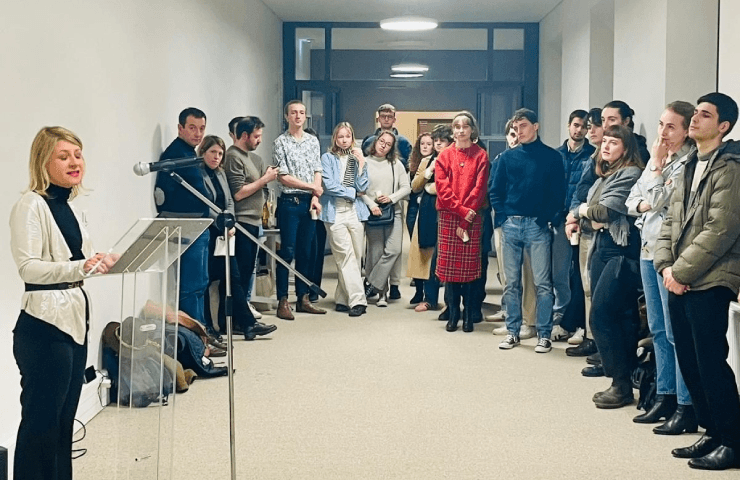- Home
- Civica
- Civica News
- “i Want To Build Bridges Through Dialogue”: Ie Student Filipe Serrano Gama On The Civica Honours Seminar In Negotiation
“I want to build bridges through dialogue”: IE student Filipe Serrano Gama on the CIVICA Honours Seminar in Negotiation

An interview with IE University’s student Filipe Serrano Gama on his participation in the CIVICA Honours Seminar hosted by Sciences Po.
Filipe Serrano Gama represented IE University in the seminar “Negotiation Skills for Public Policy: Climate Change and Environmental Transition”. CIVICA’s Honours Seminar provided him with a practical experience to put into practice the negotiation abilities he has acquired through IE University’s specialization in International Dispute Resolution. Having worked closely with other students from the alliance, he underscores the importance of soft-skills and multicultural collaboration for negotiation.
Why did you decide to participate in this experience?
It was an opportunity to complement my classroom learning with an experience that I believed would mirror the demands I will face in my professional career.
How would you describe the simulation?
I consider the simulation to have been a kind of laboratory, a space for ideas and individuals who, despite their very different backgrounds, had a common interest in the area.
How did your academic background at IE University contribute to this experience?
I am currently pursuing a Master of Laws in International Dispute Resolution, and I aim to build bridges and serve as a negotiator, in a sense, in my legal career.
With that in mind, I wanted to advance my knowledge and gain experience interacting with students from other academic institutions and backgrounds, while simulating what real negotiations looked like in an environment that resembled the high-intensity atmosphere I expect to encounter in my professional future. I would say that the courses I studied at IE University that best prepared me for this scenario were Negotiation and Public Policy Design.
What was the main challenge of the negotiation?
I would say the main challenge had to do with the way negotiation is shaped by culture and subtle contextual differences that are easy to miss. What one party sees as flexibility, another one may as well see as uncertainty.
In that sense, even minor gestures that we observe, and that may go unnoticed in our culture, might, in someone else’s send a different message. We need to be careful and cautious about that, because it is precisely in those small aspects, the things we might not even think twice about, where a deal can be made or lost.
What was the main benefit of collaborating with CIVICA?
Through CIVICA, it became evident how powerful collaboration can be when students from different institutions come equally prepared and aligned in purpose. The alliance is composed of universities with similar profiles and shared values in their approach to education. All of them are highly international in outlook, with an approach to learning that is also very hands-on and practical.
The strength of our group of students was that, regardless of our home institutions, we were prepared in the same rigorous way to approach the challenges we faced. We were well equipped to tackle each exercise, knew how to contribute meaningfully, and understood how to bring out the best in one another. United by a clear, shared European mindset, we brought with us a strong eagerness to engage in a project that truly fosters the values of unity, perseverance, collaboration, solidarity, and diversity.
Did the negotiation inspire you to engage in more CIVICA activities?
I discovered that there are resources available to students from universities that are part of the Alliance. I believe that even more collaboration can indeed occur if it is given greater visibility; that starts with engaging students early on in these sorts of initiatives.
